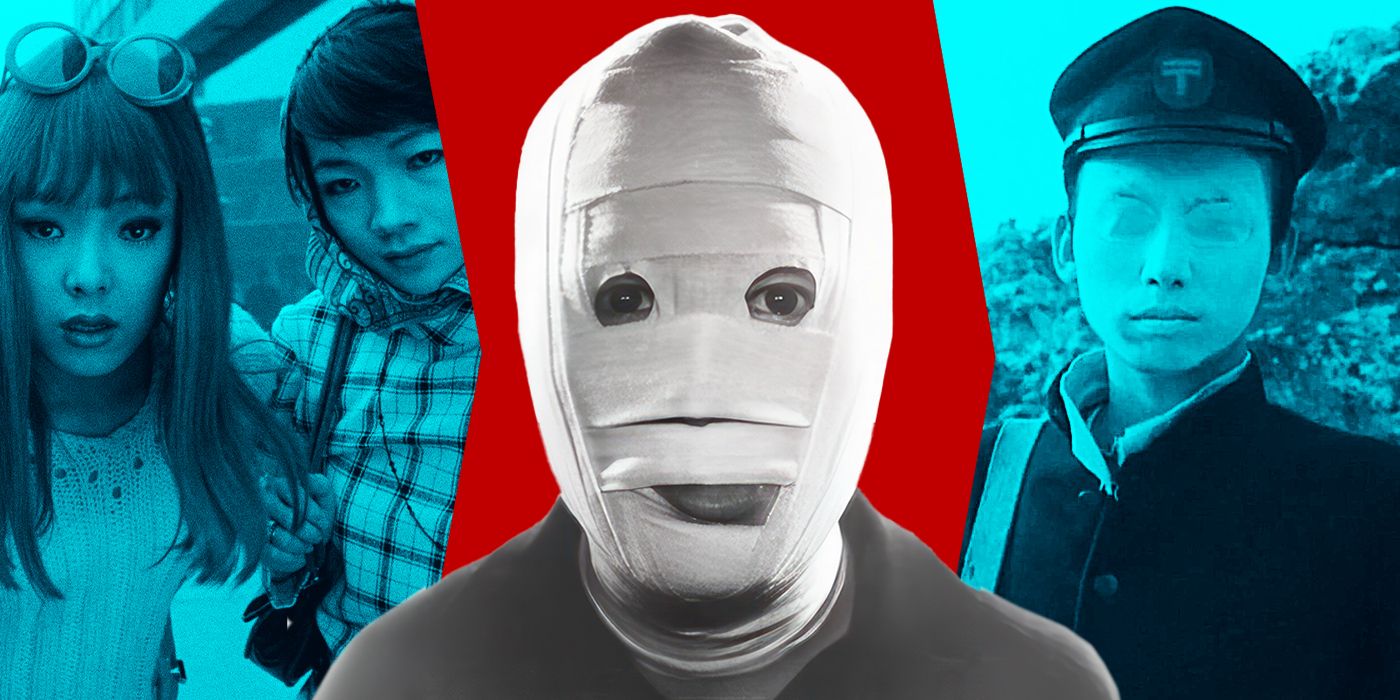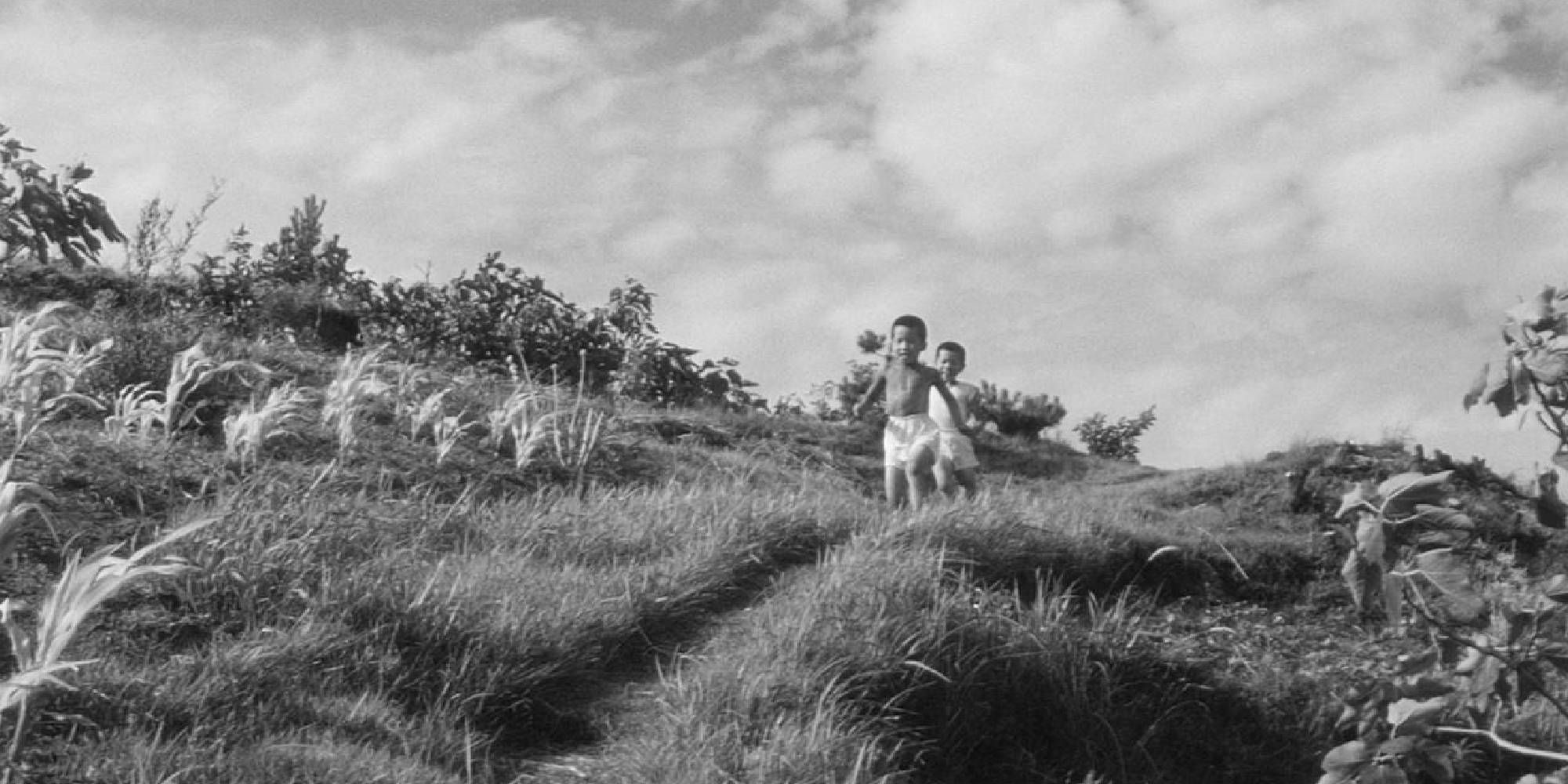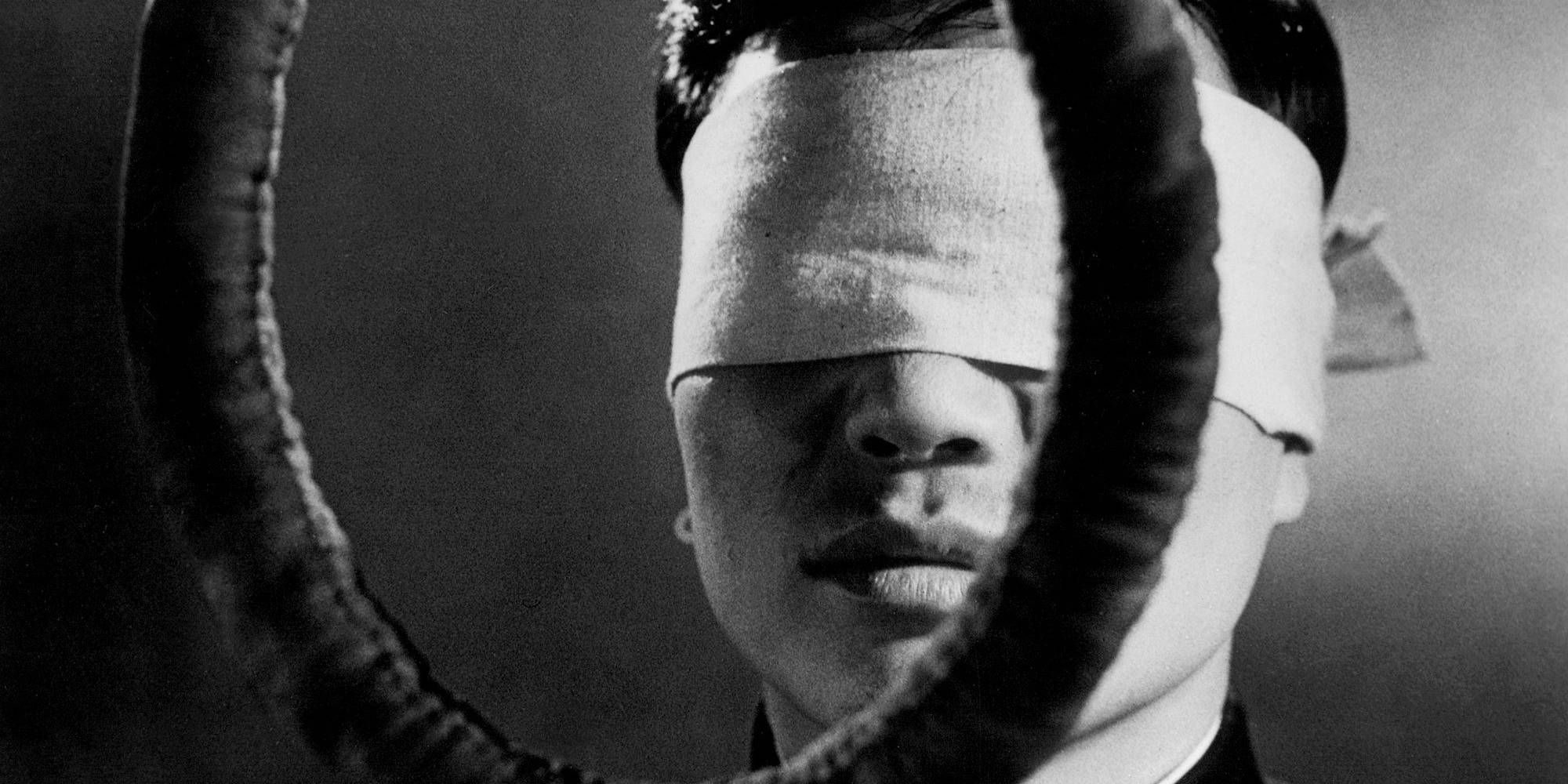Film has a few critical and unforgettable periods, and the pivotal Japanese New Wave, happening from 1950 to 1976, was exceptionally enriching and helped shape cinema history. As likely anticipated, it concentrates on taboo subjects, such as violence and radicalism, through its experimental and unconventional storytelling.
While many are familiar with European film movements such as the French New Wave, the Japanese Nūberu bāgu is equally intriguing and groundbreaking, and ultimately resulted in some of Japan's most unforgettable features with great impact worldwide. From The Naked Island to Woman in the Dunes, we look back at some of the best Japanese New Wave movies every film fan should check out at least once.
10 'The Naked Island' (1960)
Director: Kaneto Shindô
Centering around a small family consisting of a husband and wife with two sons (Nobuko Otowa, Taiki Tonoyama, Shinji Tanaka, Masanori Horimoto) struggling to navigate their lives on a tiny island in the Seto Inland Sea in Hiroshima, The Naked Island is a slice-of-life type of feature that sheds light on the family's obstacles and challenges on the face of adversity.
Kaneto Shindô's poetic film has almost no spoken dialogue, but that doesn't make it any less great: in fact, it just proves that a movie's greatness is not entirely dependent on this specific aspect. Fans of existentialist and humanist stories will probably enjoy Shindô's impeccable efforts, as the masterfully directed movie meditates on the cycle of life and work, highlighting the importance of endurance among life's tests in the meantime.
9 'Eros + Massacre' (1969)
Director: Yoshishige Yoshida
Two interconnected stories are intriguingly illustrated in Eros + Massacre, a Japanese biographical drama that ranks among the best from the Japanese New Wave. The movie follows anarchist Ōsugi Sakae and illustrates his relationship with three women: his wife Yasuko Hori, his militant feminist lover Itsuko Masoka (inspired by Ichiko Kamichika), and his third lover Itō Noe. Meanwhile, audiences also get a glimpse of two 1960s students researching Osugi's theories.
From the mind of one of Japan's most renowned directors, Yoshishige Yoshida's Eros + Massacre is certainly essential when it comes to the genre. Additionally, it also makes for a culturally rich feature, as it provides viewers with a compelling depiction of the real-life anarchist who was murdered by the Japanese military police in 1923. Despite its long runtime of 3 hours and a half, this epic arthouse movie is still quite enjoyable with breathtaking visuals.
8 'Death by Hanging' (1968)
Director: Nagisa Ōshima
Shot in a documentary-like format, Death by Hanging sees an ethnic Korean man known only as R (Do-yun Yu) — a character loosely based on the real-life Ri Chin'u, a student who murdered two Japanese school girls in 1958 — sentenced to death by hanging only to survive the execution but losing his memory in the process. In the following two hours, those responsible for his execution attempt to work out how to handle the situation: they must persuade him to embrace guilt by reminding him of his crimes.
Nagisa Ōshima's groundbreaking film surrounding the death penalty in Japan is an intriguing picture of guilt, systematic prejudice, and identity. Technically, it is a cinematic landmark and is often praised for its Brechtian techniques. Audiences who are enthralled by dark films with twisted premises may want to give the Japanese New Wave Death by Hanging a shot.
7 'Throw Away Your Books, Rally in the Streets' (1971)
Director: Shūji Terayama
This psychedelic, experimental drama by Shūji Terayama centers around an angsty teen (Eimei Sasaki) from a dysfunctional family that includes a shoplifter grandmother and a war criminal father. The nameless protagonist navigates through life after hitting the streets. While he explores the real world, Eimei Sasaki's character is inevitably disillusioned with the world around him.
This trailblazing feature may not be known worldwide, but its impact on cinema is undeniable. When it comes to the Japanese New Wave, Throw Away Your Books, Rally in the Streets is undeniably a mandatory watch. Aside from analyzing materialism in Japan among other interesting sociocultural topics, Terayama's movie also benefits from an incredible score and a thoroughly absorbing premise. It is a provocative, ahead-of-its-time watch that anyone who is getting into Japanese film should check out.
6 'Pastoral: To Die in the Country' (1974)
Director: Shūji Terayama
Also known as Pastoral Hide and Seek, this Japanese drama set in a bizarre village in Aomori Prefecture at the foot of the Scary Mountain centers around a 15-year-old boy's unconventional coming-of-age and his quest to find a way out of his hometown. Through a film within a film structure, director Shūji Terayama examines his childhood memories and attempts to translate them to the big screen.
Pastoral: To Die in the Country is mandatory viewing in the Japanese New Wave genre, as it has had a huge impact on Japanese art and the avant-garde movement, and endures landmark in cinema today. Masterfully directed by a frequently overlooked director, this visionary film sheds light on themes of childhood in a compelling surrealist manner.



